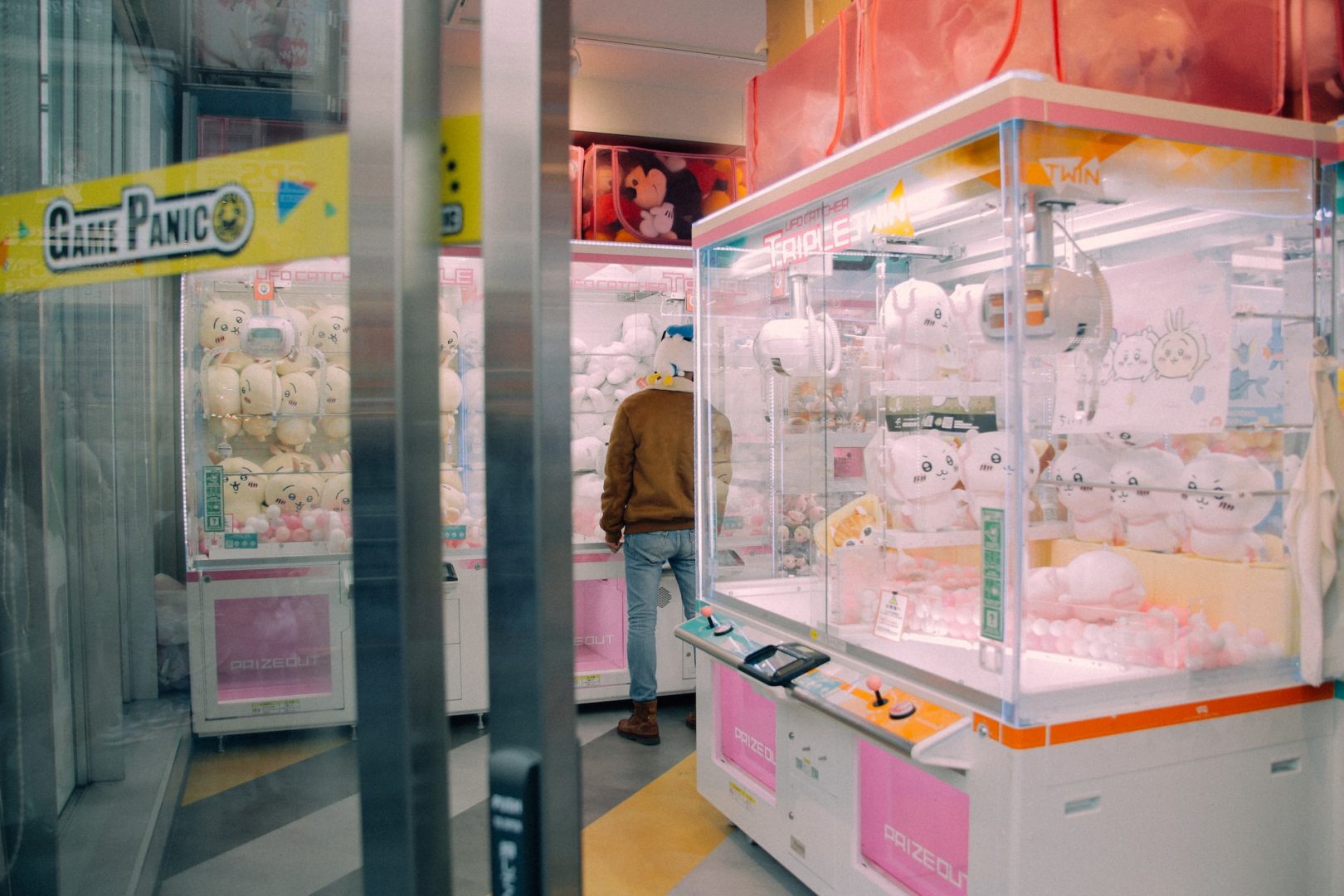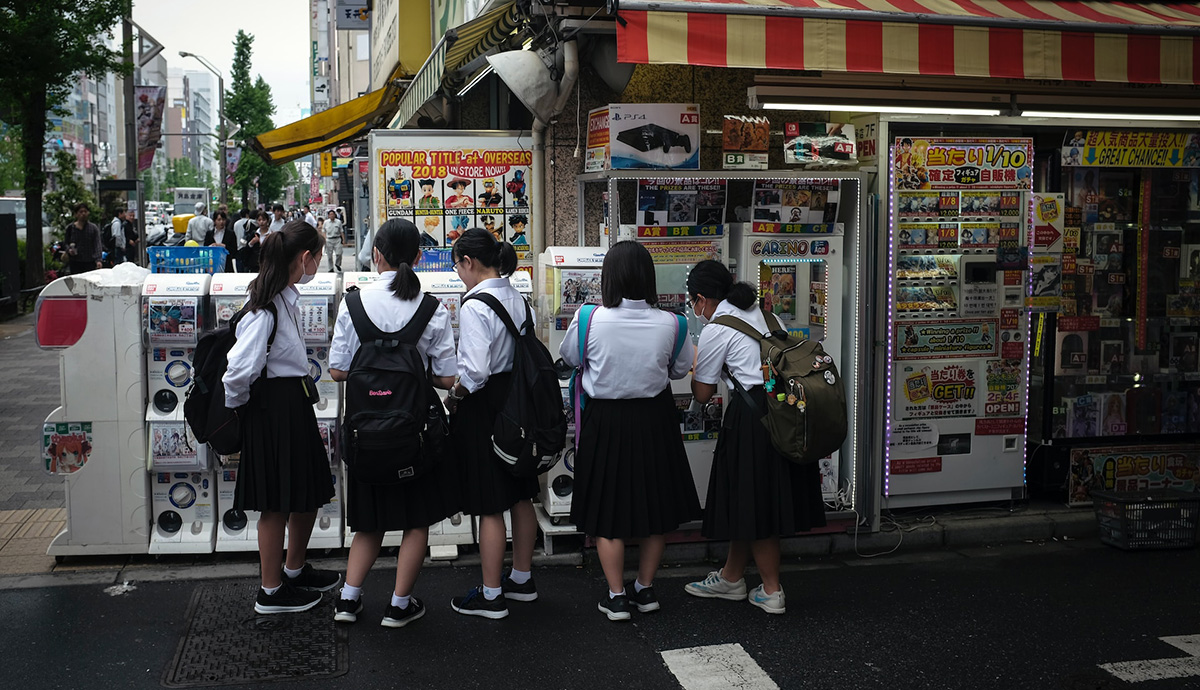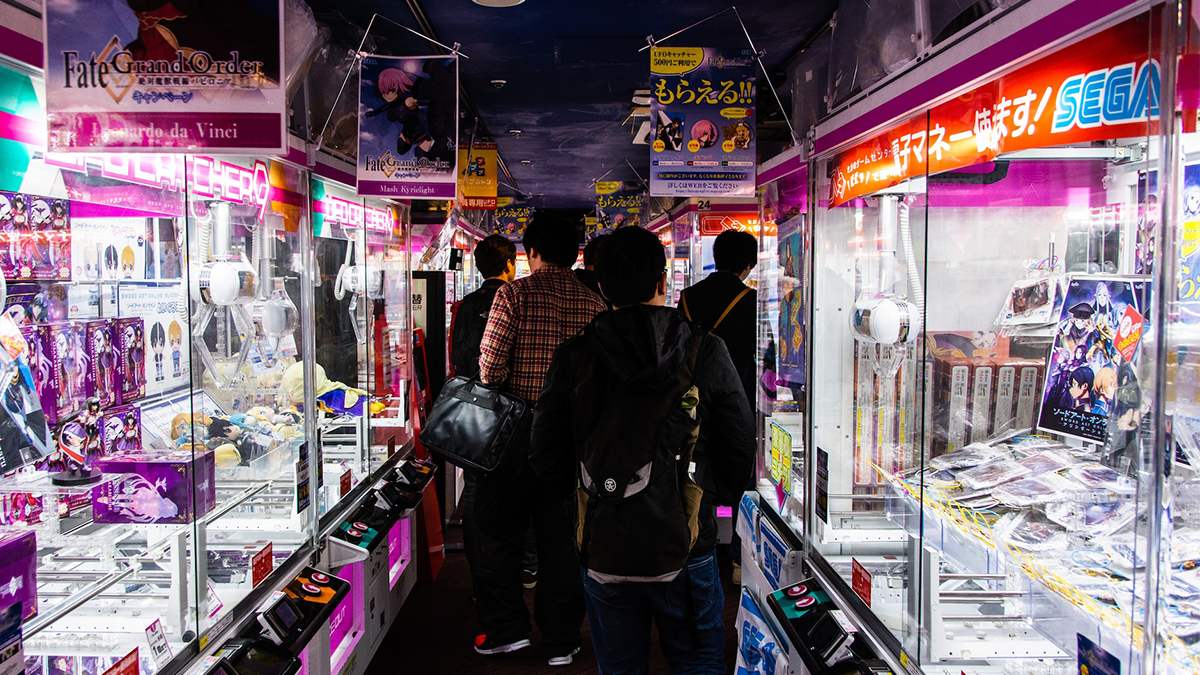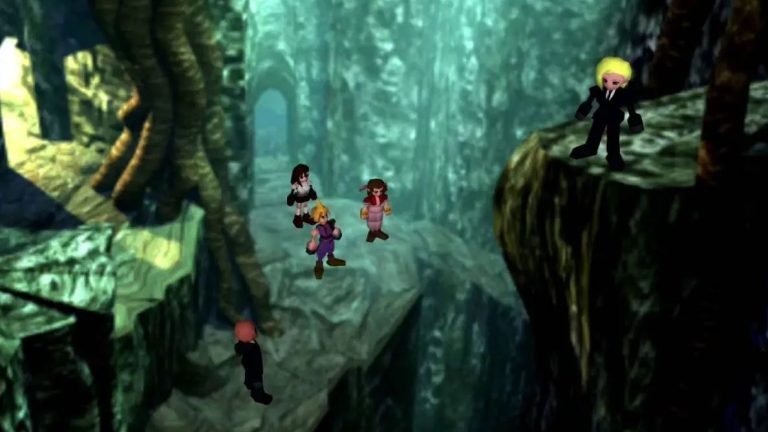Is forbidding children from visiting game centers alone overprotective and limiting to their freedom, or does not doing so expose them to risk? A Japanese free legal consultation portal bengo4 recently published an article posing these questions, and it has since gathered significant attention as users debate their opinions on the topic.
Game centers, also called gesen are Japanese arcades. They can be found anywhere in Japan and are a mainstream form of entertainment for both young people and adults. They include a variety of arcade game machines, crane games, capsule machines, photobooths and similar. Having one turn at a game machine can cost from 100 yen (around 72 cents) up to around 400 yen (around 2.87$). A lot of game centers have relatively late closing hours.
Legally speaking, Japanese law does not prohibit children visiting game centers unaccompanied by adults during daytime. However, as game centers officially fall under adult entertainment businesses, age-based entry regulations do exist. The current law allows children to visit game centers on their own until 06:00 PM. From 06:00 PM to 10:00 PM the presence of a guardian is necessary.

The dilemma put forward recently stemmed from concerns voiced by parents and game center staff about cases of children taking game tokens from each other or asking the game center for large refunds after using their parents’ money without permission. Wanting to avoid this kind of trouble entirely, some people expressed the stance that such young children should not participate on their own in any activity that involves money, while others deemed such a prohibition overprotective and believed children should be allowed to spend their allowance more freely.
The open-ended article asking for the public’s opinion was followed by an article containing a response from a school principal on the topic. The principal of 40 years of teaching experience stressed the fact that elementary school children do not have sufficiently developed decision-making abilities to navigate a risk-filled environment such as a game center and can thus easily end up in trouble.
One of the major risks the principal mentions is that of older children – they describe cases of grade schoolers being cornered and threatened by middle and high school aged children, sometimes having money extorted from them.

Addressing the argument that children should be let to experience the real world in order to learn, the principle stressed that some experiences are too traumatic, and reminds parents that there can be consequences such as game addiction and loss of family funds, as well as worsening of interpersonal relationships between two parents, or even between the parents of different children if money-related trouble happens between friends.
The article gathered numerous responses from the public, with the topic even trending for a while on Twitter. Many shared the opinions posed in the original article and shared experiences they had in game centers in the past, such as being extorted by the very friends they had come with.
On the other hand, some stood on the opposite side, stating that the environment of game centers hardened them and taught them how to stand up against bullies.
Game centers are a major element of Japan’s entertainment culture and a frequent location of choice for social gatherings of Japanese youths, which is why forbidding a child from participating can cause feelings of ostracism. But, the safety of children is undoubtedly also a priority, which makes this a complex and sensitive topic. The number of responses from the public, each stating their own correct answers, also shows the need for a nuanced approach.





